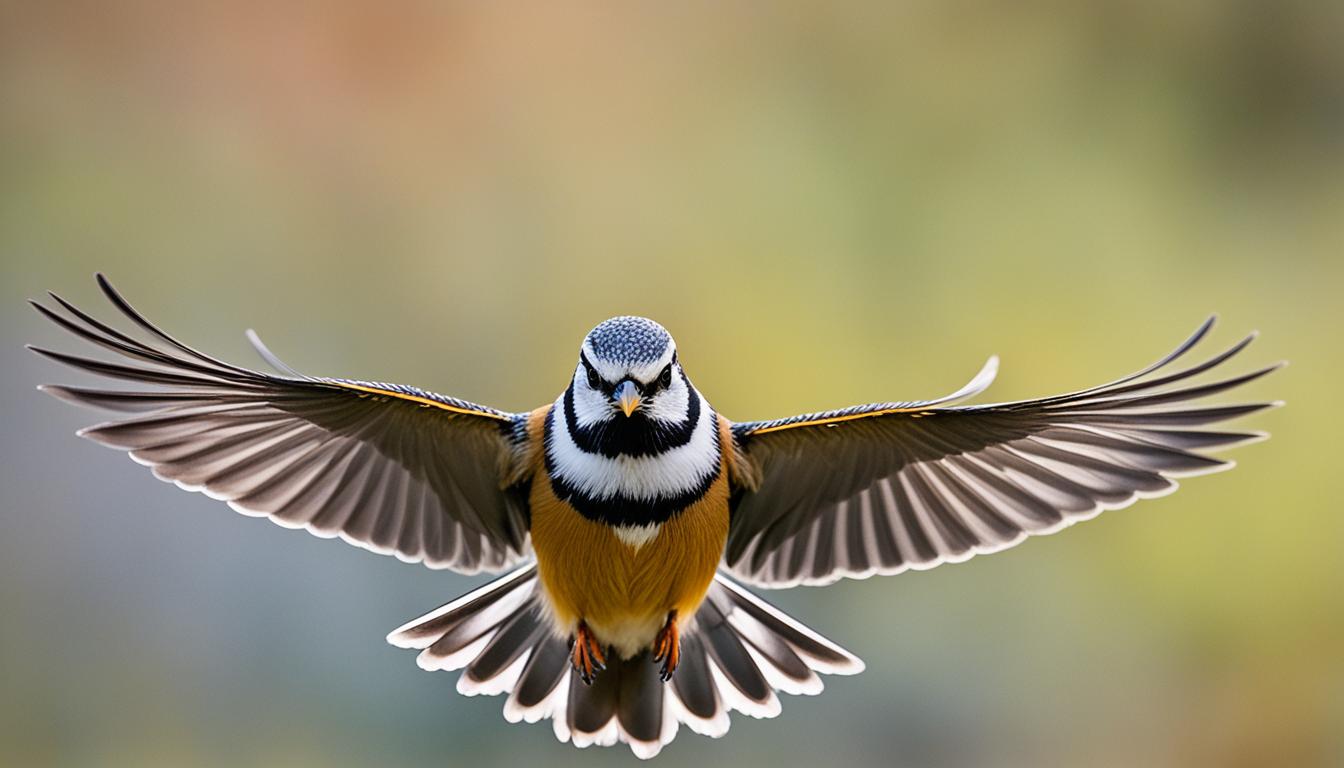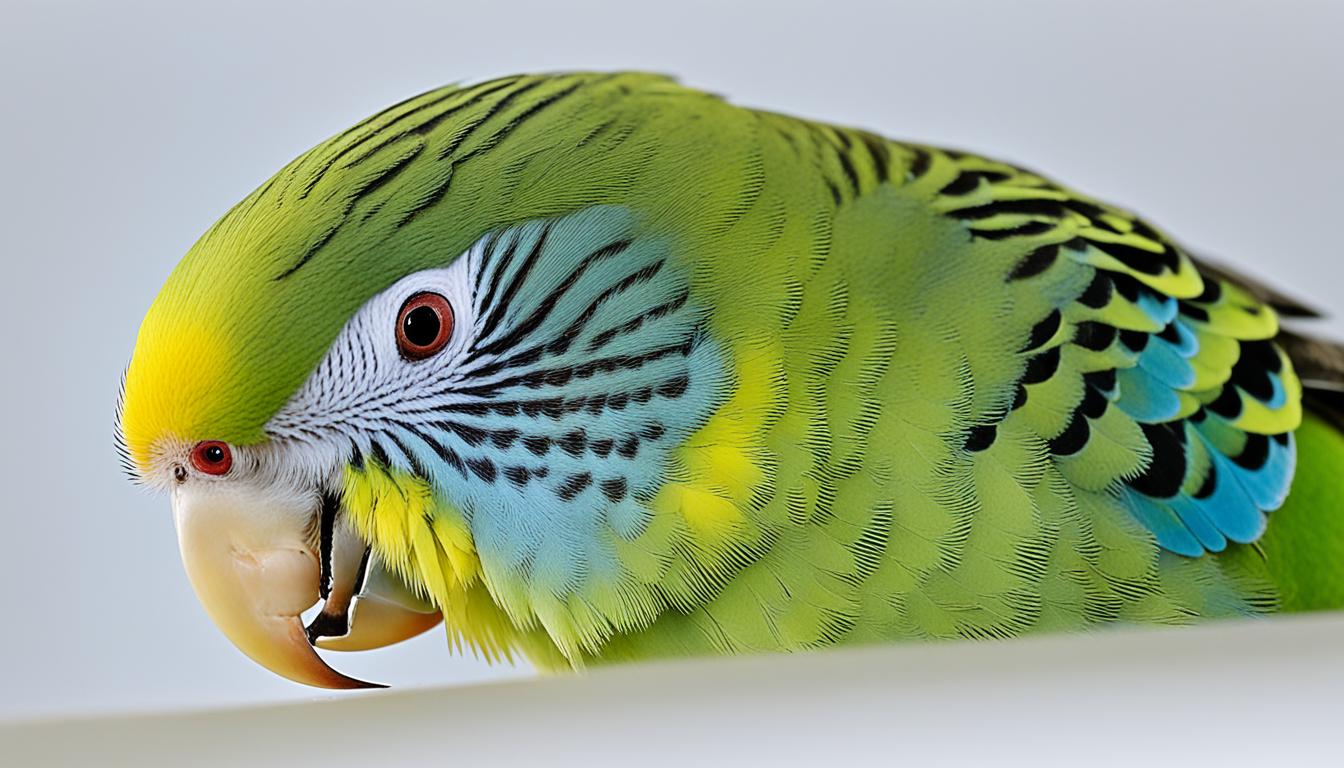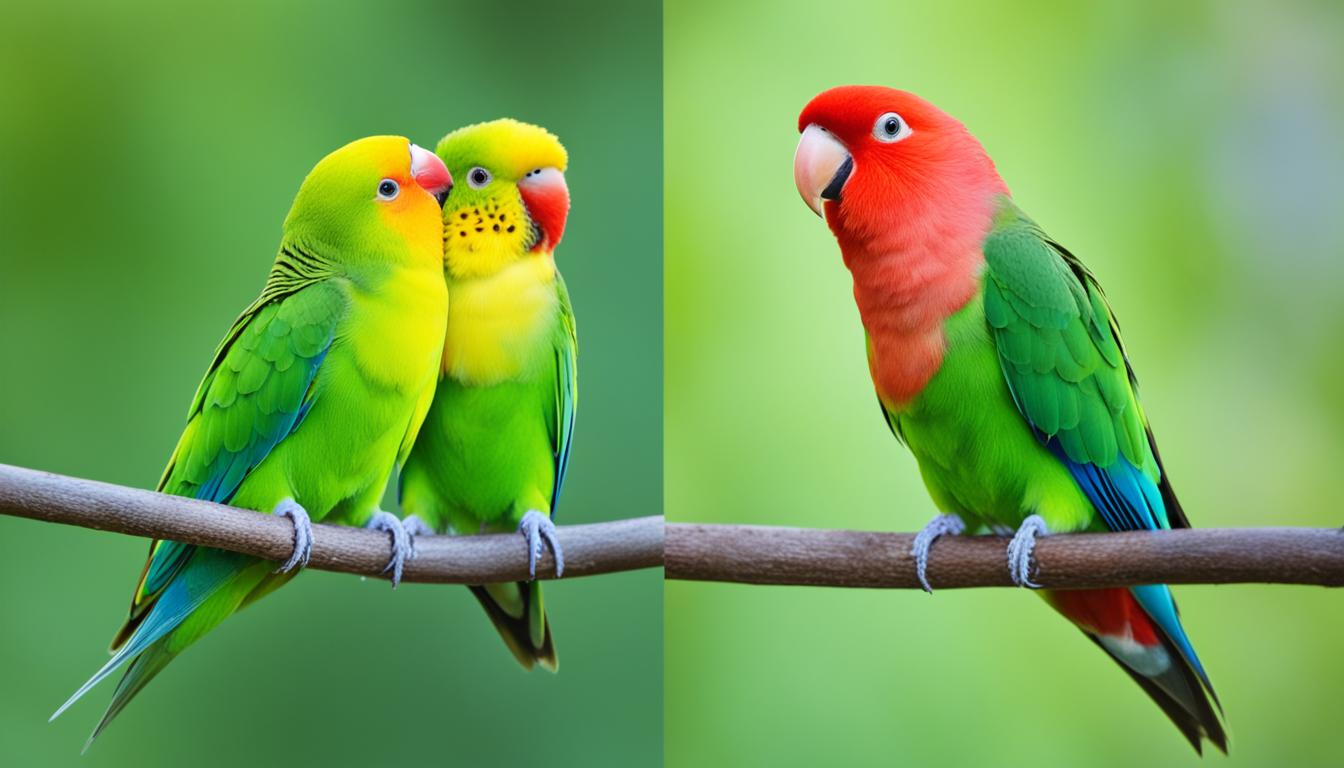Did you know that shaking or trembling is a common behavior in birds? It’s true! If you’ve observed your feathered companion shaking, there’s no need to worry right away. There could be various reasons for this behavior, from natural reactions to possible health issues. Knowing why your bird is shaking is essential for their health and your peace of mind.
Key Takeaways:
- Shaking is a common behavior in birds and can have various causes.
- Factors such as nervousness, temperature, flight preparation, illness, and emotions can contribute to bird shaking.
- Observing your bird’s body language and seeking professional advice are essential for understanding the underlying reasons and addressing any issues.
- Regular veterinary check-ups are crucial for ensuring your bird’s overall health and happiness.
- By creating a comfortable environment and addressing any stress factors, you can help alleviate your bird’s shaking and promote their well-being.
Nervousness as a Cause of Shaking in Birds
Nervousness can be a common cause of shaking in birds. Parakeets, as prey animals, are naturally attuned to their environment and can react negatively to sudden or unusual changes.
“Birds, including parakeets, are naturally attuned to their environment and react negatively to sudden or unusual changes.”
Factors such as loud noises, new sights, or changes in their environment can unsettle a nervous parakeet and lead to trembling or shaking.
“Common stressors that may cause shaking include loud noises, new sights, or changes in the environment.”
It’s important to identify and address these stressors to help alleviate your bird’s nervousness and promote a sense of calm.
“Identifying and addressing the root causes of nervousness is crucial in ensuring your bird’s well-being and promoting a sense of calm.”
Temperature and Its Impact on Bird Shaking
Temperature plays a significant role in a bird’s comfort and well-being. If your bird is shaking, it may be an indication that they are too cold or hot. Parakeets, being tropical birds, thrive in temperatures around 70-75°F. If the temperature drops below this range, your bird may start shaking as a way to generate heat. On the other hand, if the temperature is too high, shaking can be a deliberate attempt to cool off. Maintaining a comfortable temperature range for your bird is essential to prevent discomfort and potential health issues.
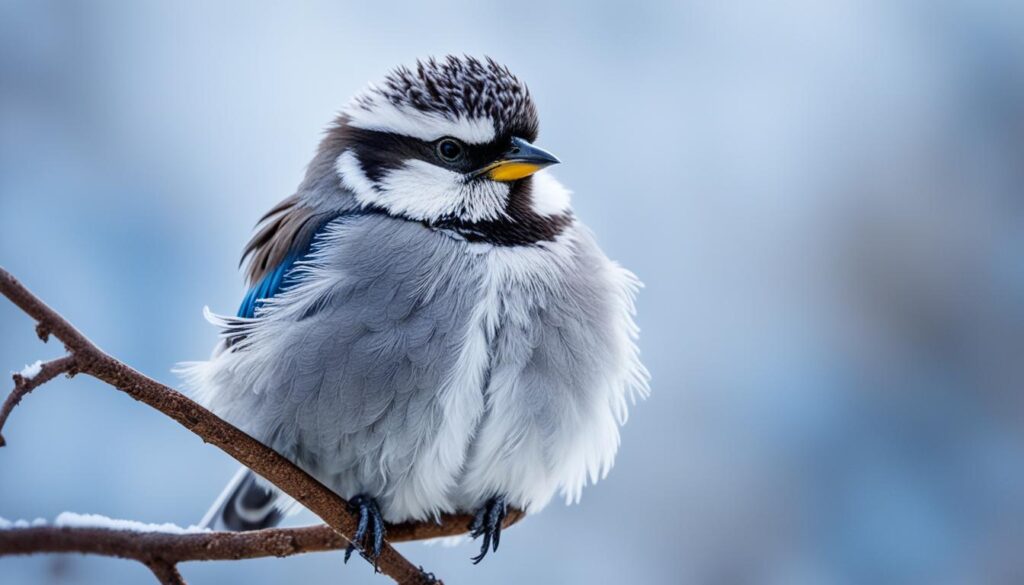
Regulating Temperature in Birds
- Shivering: When a bird shakes to generate heat, it is a natural thermoregulation mechanism similar to shivering in humans. By rapidly contracting and relaxing their muscles, birds increase their metabolic rate and generate warmth.
- Preening: Birds may also shake their feathers as part of their preening behavior. This action helps realign feathers, remove dirt, and distribute natural oils essential for insulation and waterproofing.
- Feather Fluffing: Another way birds regulate their temperature is through feather fluffing. By puffing up their feathers, they create air pockets that help insulate their bodies and retain heat.
“Maintaining a comfortable temperature range for your bird is crucial to their overall well-being. Just like us, birds experience discomfort when exposed to extreme temperatures. By providing a suitable environment and monitoring the temperature, you can ensure a happy and healthy bird.” – Avian Veterinarian, Dr. Sarah Johnson
Remember, when adjusting the temperature, it’s essential to consider the specific needs of your bird species. Consult avian experts or reputable sources to determine the ideal temperature range for your particular avian companion.
The Connection Between Bird Shaking and Flight
Some birds, including parakeets, may display shaking or trembling behavior when they are preparing to fly. This pre-flight shaking is often seen in birds that have not had their wing feathers clipped and are trained for controlled flight. If your bird is exhibiting shaking actions and appears restless, it could be a sign that they are considering taking flight or are anticipating a flight opportunity. Understanding this behavior can help you provide appropriate training and environments for your bird’s flight needs.
When birds shake before flight, it is a natural part of their pre-flight behavior. This shaking helps birds prepare their bodies and wings for takeoff. By shaking, birds loosen their muscles, align their feathers, and ensure optimal flight performance. It allows them to correct any misalignments in their feathers and ensure their wings are in peak condition.
During pre-flight shaking, birds are also adjusting their weight distribution and balance, making sure they are ready to take off smoothly and efficiently. This behavior is especially common in birds that have free flight opportunities or spend a significant amount of time in open spaces where flying is encouraged.
| Reasons for Bird Shaking during Pre-flight Behavior | Implications |
|---|---|
| Preparing the body and wings for flight | Optimal flight performance | Loosening muscles and aligning feathers | Proper wing function and stability |
| Adjusting weight distribution and balance | Smooth and efficient takeoff |
Observing your bird’s pre-flight shaking behavior can provide valuable insights into their readiness to fly and their overall physical well-being. It’s important to ensure your bird has a safe and suitable environment for flight, with plenty of space and minimal obstacles. Regular flight opportunities and proper wing care, such as trimming or maintenance, can also contribute to a healthy bird.
By understanding the connection between bird shaking and flight, you can create a nurturing environment that supports your bird’s natural instincts and enables them to enjoy the freedom and joy of flying.

Bird Shaking as a Potential Sign of Illness
While various factors can cause a bird to shake, it’s important to consider illness as a possible explanation if other causes have been ruled out. Birds, including parakeets, are adept at hiding signs of illness, so it’s crucial to observe them closely for any additional symptoms or changes in behavior. If your bird’s shaking is accompanied by symptoms such as puffy eyes, lethargy, or a change in grooming habits, it could be an indication of an underlying health issue. Contacting a bird veterinarian for a thorough examination is recommended if you suspect illness as the cause of your bird’s shaking.
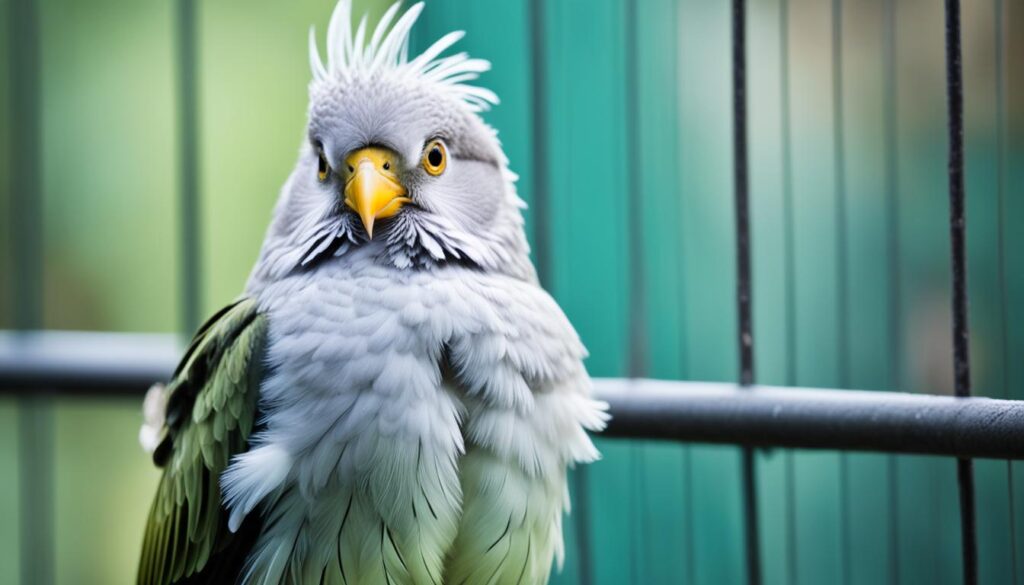
Birds, like any living creatures, can fall ill, and their bodies may react by shaking or trembling. While shaking alone may not always indicate an illness, it’s crucial to pay attention to other symptoms that may accompany the shaking behavior. This is especially true for parakeets, as they are known to hide signs of illness as a survival instinct.
If you notice your bird shaking and displaying additional signs of illness such as puffy or swollen eyes, decreased activity or lethargy, weight loss, changes in appetite or thirst, changes in vocalization patterns, or a decline in grooming habits, it could be an indication of an underlying health issue. Other symptoms to watch out for include abnormal droppings, nasal discharge, difficulty breathing, sneezing, or open-mouth breathing.
To properly diagnose and treat your bird’s illness, it is crucial to consult a bird veterinarian. They will conduct a thorough examination, which may include physical assessment, diagnostic tests, and laboratory analysis of samples such as blood, feathers, or droppings. Prompt veterinary care is essential to identify and address any potential health concerns and ensure the overall well-being of your bird.
Common Illnesses That Can Cause Shaking in Birds
Several illnesses can manifest with shaking or tremors in birds. It’s important to be aware of these conditions and their accompanying symptoms so you can provide the necessary care and seek appropriate medical attention for your feathered friend. Here are some common illnesses known to cause shaking in birds:
| Illness | Symptoms |
|---|---|
| Bacterial or Viral Infections | Shaking, lethargy, loss of appetite, respiratory distress, abnormal droppings |
| Parasitic Infestations | Shaking, feather loss, decreased activity, weight loss, itching or irritation |
| Liver Disease | Shaking, yellowing of the skin or eyes, weight loss, diarrhea, abdominal distension |
| Respiratory Disorders | Shaking, wheezing, coughing, difficulty breathing |
| Poisoning | Shaking, weakness, seizures, vomiting, diarrhea |
These are just a few examples, and there are other illnesses that can present with shaking or similar symptoms. It’s always best to consult with a bird veterinarian for an accurate diagnosis.
Remember, early detection and timely treatment are crucial for the successful management of bird illnesses. If you notice any signs of illness, including shaking, in your bird, seek professional veterinary care to ensure the best possible outcome for your feathered companion.
Can Parrots Shake Due to Emotions?
Parrots are highly intelligent and expressive creatures, capable of demonstrating a wide range of emotions. One way they communicate these feelings is through shaking or quivering. This behavior can indicate extreme emotions such as happiness or excitement. For example, African grey parrots are known to quiver with excitement when they anticipate an enjoyable activity or interaction.
Understanding your parrot’s breed-specific behaviors and body language is crucial to correctly interpreting their shaking. By observing their overall behavior and the context in which the shaking occurs, you can discern whether it is a result of positive emotions or potential distress.
It’s important to remember that not all shaking in parrots is indicative of emotions. There may be underlying health issues or environmental factors contributing to their behavior. Therefore, it’s essential to consider the complete picture and look for other signs or symptoms before attributing shaking solely to emotions.
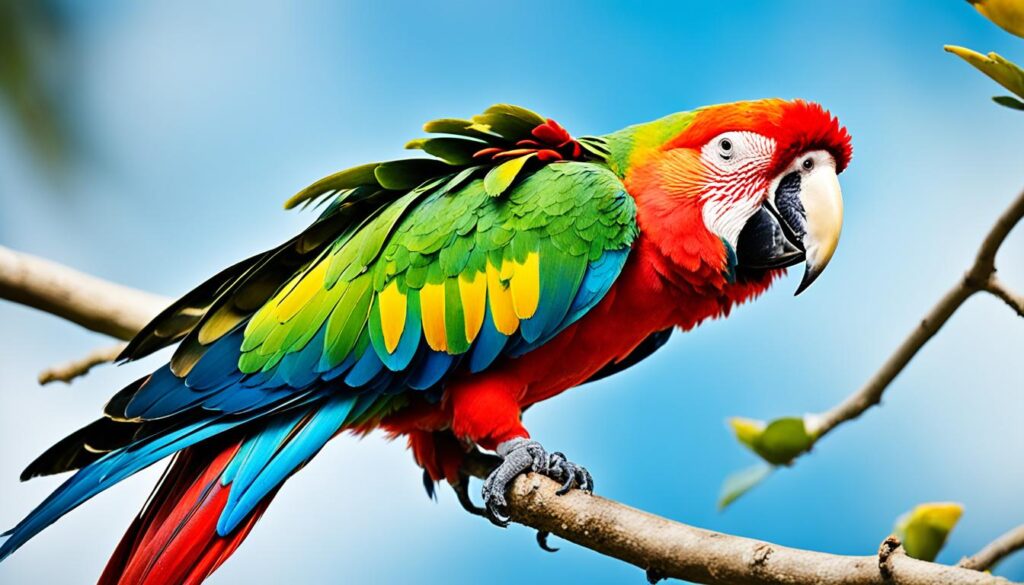
Understanding Parrot Body Language
Parrots have a complex range of behaviors and body language cues that can provide further insight into their emotions and needs. Here are some key body language signals to watch for:
- Feather fluffing or ruffling: This can be a sign of contentment or relaxation.
- Eye pinning: Rapid dilation or constriction of the pupils can indicate excitement, fear, or interest.
- Head movements: Head bobbing can signal hunger, excitement, or an attempt to gain a better view of their surroundings.
- Beak actions: Beak grinding, clicking, or wiping can have various meanings, from relaxation to communication.
By familiarizing yourself with these behaviors and observing them in the context of your parrot’s overall demeanor, you can better understand their emotional state and respond accordingly.
Interpreting Bird Body Language: The Key to Understanding Shaking
Reading a bird’s body language is crucial for understanding their needs and emotions. Birds communicate through a combination of physical movements, vocalizations, and visual cues. By observing their eye movements, head movements, beak behaviors, feather fluffing, and tail wagging, you can decipher what your bird is trying to convey.
Birds display a wide range of body language signals, each with its own meaning. For example, a bird that rapidly flicks its tail back and forth may be demonstrating excitement, while a bird that fluffs its feathers may be showing signs of aggression or fear. Understanding these subtle cues can help you gain insights into your bird’s emotional states and overall well-being.
When it comes to interpreting bird shaking, it’s important to consider the context and other body language signals exhibited by your bird. Shaking can have different meanings based on the situation. For instance, if a bird is shaking while vocalizing and displaying other signs of distress, it could indicate fear or unease. On the other hand, if a bird is shaking during playtime or when interacting with you, it might be a display of excitement or anticipation.
Observing your bird’s body language as a whole is crucial for accurately interpreting their behavior and emotions. It’s like piecing together a puzzle, with each physical movement, sound, and expression providing valuable clues.
Early detection of signs of discomfort or distress, such as shaking, through body language interpretation can help you address any underlying issues promptly. By understanding your bird’s unique body language patterns, you’ll be better equipped to provide the necessary care, attention, and environment that promotes their well-being.
Key Body Language Signals to Look for:
- Eye movements: Dilated or constricted pupils, direct or sideward glances
- Head movements: Nodding, tilting, or jerking movements
- Beak behaviors: Clicking, grinding, targeting objects, or vocalizing
- Feather fluffing: Puffed-up feathers can indicate fear, discomfort, or illness
- Tail wagging: Tail movements can reflect different emotions, from excitement to warning signals
By observing these body language cues and considering the context of your bird’s behavior, you can gain valuable insights into their well-being and address any potential concerns effectively.
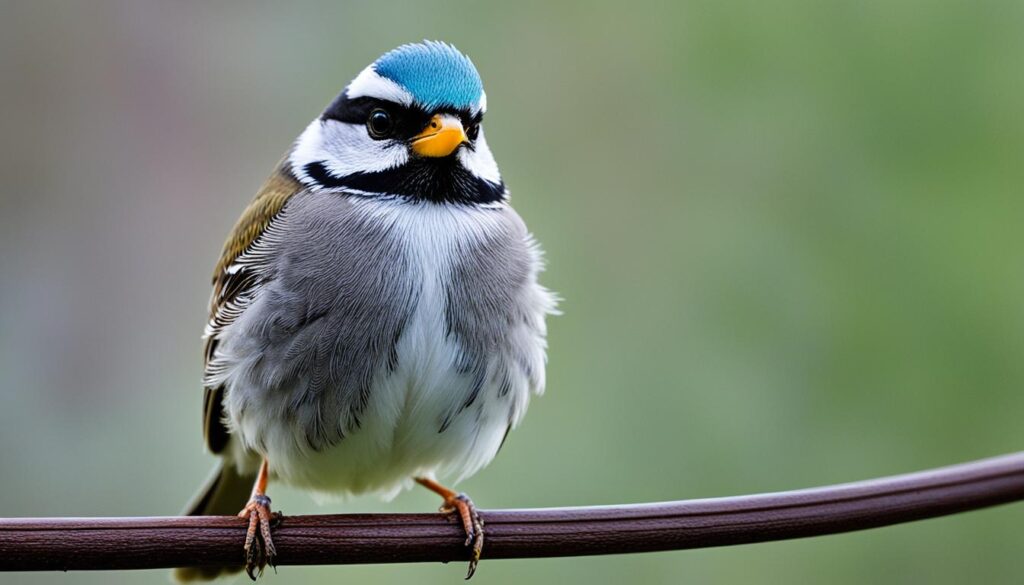
Final Thoughts
Interpreting bird body language is a skill that can deepen your understanding of your feathered companion. By paying attention to their physical movements, vocalizations, and visual cues, you can decode their emotions and needs, including the reasons behind shaking. Remember, each bird is unique, and their body language may vary. Spend time observing and bonding with your bird to establish a stronger connection and develop a greater understanding of their behaviors.
Understanding Specific Bird Behaviors: Eye Pinning, Head Bobbing, and Beak Actions
Specific bird behaviors can provide valuable insights into their feelings and well-being. By observing these behaviors, you can gain a deeper understanding of your bird’s state of mind. Let’s explore three specific behaviors: eye pinning, head bobbing, and beak actions, and their meanings.
Eye Pinning:
Eye pinning refers to the rapid change in pupil size and can indicate various emotions in birds. It is an important behavior to observe as it provides insight into their mood and level of arousal. Eye pinning can signify excitement, fear, or interest. When a bird’s eyes pin, it means their pupils constrict and dilate rapidly. This behavior can help you gauge your bird’s reactions to different stimuli and environments.
Head Bobbing:
Head bobbing is another behavior commonly displayed by birds, including parakeets. It involves the repetitive up and down movement of the head. Head bobbing can serve different purposes, depending on the context. It may indicate hunger, excitement, or an attempt to see better. For example, parakeets may bob their heads while exploring their surroundings or when they anticipate mealtime. It is a fascinating behavior that allows birds to gather information and interact with their environment.
Beak Actions:
Beak actions encompass a variety of behaviors related to a bird’s beak. Different beak actions can convey distinct meanings and intentions. Some common beak actions include grinding, clicking, and wiping. Grinding, where a bird rubs its beak together, often signifies relaxation and contentment. Clicking, the sound produced when a bird rapidly opens and closes its beak without making contact, can indicate communication or territorial behavior. Wiping, when a bird rubs or wipes its beak on a surface, can be a grooming behavior or a sign of food preparation. Understanding these beak actions helps you interpret your bird’s communication and emotional state.
By understanding these specific bird behaviors – eye pinning, head bobbing, and beak actions – you can gain valuable insights into your bird’s feelings and well-being. Observing and interpreting these behaviors will enable you to better understand and communicate with your feathered friend, creating a deeper bond and providing them with the care they need.
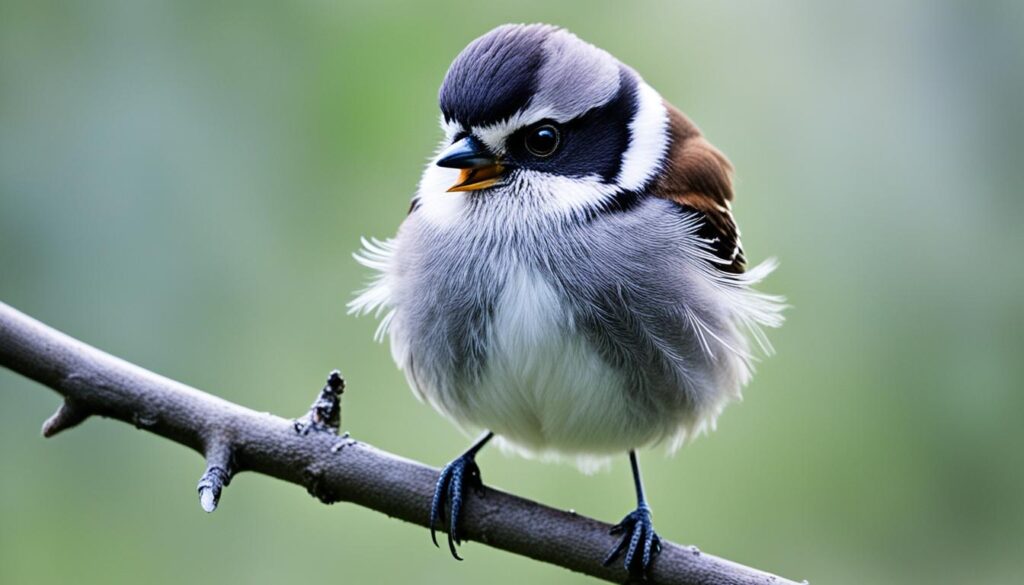
| Behavior | Meaning |
|---|---|
| Eye Pinning | Excitement, fear, or interest |
| Head Bobbing | Hunger, excitement, or improved visibility |
| Beak Actions | Grinding: Relaxation and contentment Clicking: Communication or territorial behavior Wiping: Grooming or food preparation |
Conclusion
Understanding your bird’s behavior and body language is crucial for deciphering the reasons behind their shaking. Whether it’s a natural reaction, a sign of nervousness, or an indication of an underlying health issue, close observation and awareness are key to providing the necessary care and support. By creating a suitable environment, addressing stress factors, and seeking professional guidance, you can ensure the overall well-being of your feathered companion.
Regular veterinary check-ups play a vital role in maintaining your bird’s health and preventing potential complications. A professional can provide further insights into your bird’s behavior, help identify any health concerns, and recommend appropriate treatments or interventions if necessary. Remember, seeking expert advice is crucial, as they can offer customized solutions based on your bird’s specific needs.
By deepening your knowledge of bird behavior and diligently observing your pet, you can strengthen the bond with your bird and ensure a fulfilling and harmonious relationship. With patience, understanding, and proactive care, you can provide a nurturing environment where your bird can thrive, expressing their true nature and bringing joy to your everyday life.
